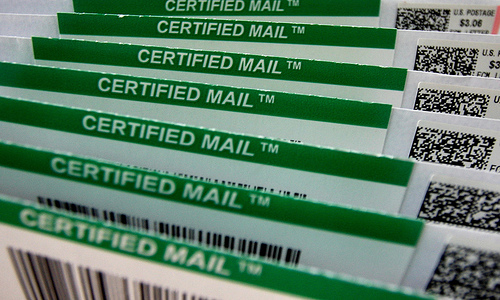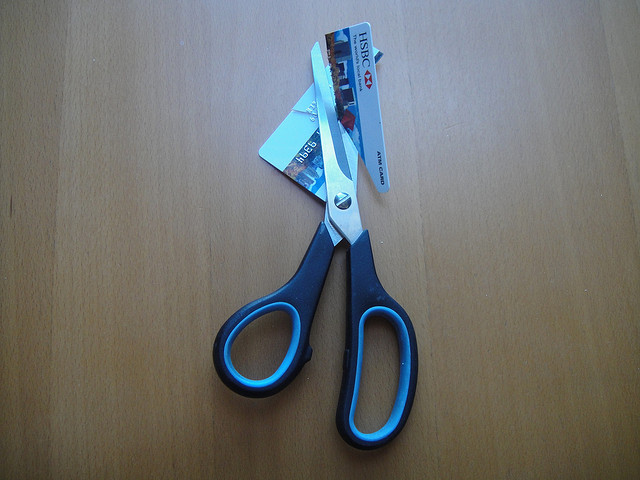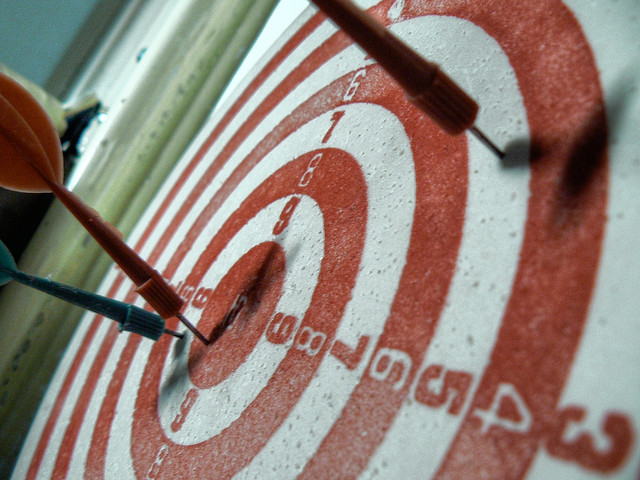
by Adam | Dec 19, 2014 | Credit Repair
If you think credit report errors are few and far between, consider this statistic: an FTC study recently concluded that as many as 40 million Americans have credit reports containing errors. Half of those reports contained errors that could negatively impact their credit score. Released in 2013, the study spanned 8 years of research. In the study, participants were encouraged to dispute errors found in their credit report. Of those who disputed errors: 20% had an error corrected once it was disputed 10% noticed a change in their credit score after disputing a credit error 5% experienced a score change of more than 25 points Only one in 250 consumers’ score was changed by more than 100 points Clearly, credit report errors are widespread, with mistakes hurting the scores of millions of Americans. Worst-Case Scenario for one Ohio Nurse In an interview with the CBS News show 60 Minutes, Judy Thomas, a trauma nurse from Cleveland, Ohio, detailed a series of events that might just describe the kind of worst-case scenario that happens all too often when it comes to credit report errors. Thomas, who spent years working hard to build good credit, was denied out of the blue for a credit card. An initial look at her credit reports showed no errors, but the denials for credit kept coming in. Finally, Thomas discovered the credit report that the 3 credit bureaus show to creditors (which is different from the one they give to consumers) contained debt and collections from a completely different person in Utah. What should have been an easy fix turned into a years-long ordeal that finally culminated...

by Adam | Dec 12, 2014 | Credit Repair
Credit card accounts don’t go away on their own, but you should make a few consideration before chopping up a bunch of credit cards with scissors. Why Cancel a Credit Card Account? There are many good reasons for closing a credit card: An open credit card account that you don’t use is at risk for identity theft You may wish to close a credit card account so you are not tempted to use it and get in more debt Annual fees or expired promotions make it unfeasible or costly to keep it open You want to close a card with a high interest rate and open a new one with a lower rate When You Should Keep A Credit Card Account Open It’s not always wise to close a credit card account, and it has to do with your credit score. Your “credit utilization rate” is one factor the credit bureaus use to determine your score, and when you cancel a credit card account you are reducing your available credit. If you are carrying debt, then your utilization rate will go up because your current debt will be a larger percentage of your overall credit limit. A utilization rate above 10% will start to have a negative impact on your score. It’s also a good idea to keep certain accounts open for a long time, since it shows that you have a long credit history, which can improve your score. If you’ve had a credit card account for many years, it might be a good idea to keep it open. How to Close a Credit Card Account Safely Without Dinging Your Credit...

by Adam | Dec 8, 2014 | Credit Repair
Credit repair can be frustrating and complex. To determine your credit score, the credit bureaus take into account many different factors which they weigh in different amounts. While there are many things you can do that will help improve your score over time, there are many myths about credit repair that just won’t go away. Let’s go over 5 of the most common credit repair myths, so you can separate myth from reality when it comes to improving your credit score! Myth 1: Closing multiple accounts will increase my score Some people think that if they close all their credit card accounts after they’ve paid them off, not only will it help keep them from racking up more debt but it will also improve their score. The truth is that while paying down your debt will help raise your score, closing a bunch of accounts will reduce your overall “credit limit,” or the amount of credit available to you. This can actually hurt your score, since the credit bureaus want to see that you have available credit, but that you’re not using too much of it. Instead, keep one or several credit card accounts open, but don’t use more than 10% of the available credit (or better yet, pay them down to zero every month). Myth 2: Opening multiple accounts will magically increase my score If having a lot of available credit improves your score, then opening a bunch of new credit cards should give you a good boost, right? Wrong. The credit bureaus also take into account “credit inquiries,” and every time you open up a new line of...

by Adam | Nov 28, 2014 | Credit Repair
Credit repair can be a lengthy and frustrating process. Once you’ve finally achieved a healthy score, there are a few things you need to do in order to prevent it from slipping again. Self-discipline is vital to a healthy credit score. The key to achieving a score in the high 700’s (and possibly up into the 800’s) is through cultivating good spending habits. Here are a few handy rules-of-thumb when it comes to your credit. Use Credit, but Use it Wisely To maintain a high score, you still need to use credit. Lenders want to see that you’re using credit responsibly, and if you’ve gone a long time without using credit at all that can actually lower your score. So you don’t necessarily have to cut up all your credit cards and close all your accounts once they are paid off. Keep at least one credit card (or possibly several), and use it responsibly. Don’t Use More Than 10% of your Credit Limit While you should be utilizing your credit, you should never carry a high balance on any credit card. If you carry a balance that is more than 10% of your credit limit, it can negatively impact your score. Instead, keep your balance below 10% of your limit, and ideally pay your balance down to zero every month. This has the double benefit of strengthening your credit score and making sure you don’t spend money on interest. Don’t Miss a Payment A single late payment can ding your credit score. Don’t let all your hard work slip away with missed monthly payments. Instead, set up an automatic payment plan....

by Adam | Nov 11, 2014 | Credit Repair
Divorce has a way of destabilizing life in unexpected ways. For example, your credit score may be at risk of taking a hit during a divorce, unless you’re careful and take several steps to protect it. This is because the typical married couple’s finances are so intertwined, that disentangling the various debts and accounts can take significant time and effort. As long as you are vigilant (and keep a spirit of cooperation with your ex-spouse), then there’s no reason why your credit score should go down after your divorce. Get Copies of Your Credit Reports Your first step should be to obtain copies of all three credit reports from the credit reporting bureaus. This will allow you to identify all your accounts that are jointly held between you and your spouse. As part of the divorce process, you may be issued a “divorce decree” by the court. This is a way of splitting up assets and debts between the two parties, but it’s up to you to do the legwork. You’ll need to contact creditors, close accounts, set up new accounts, and all other necessary steps yourself. Do Your Best to Close Your Joint Accounts BEFORE you Divorce Ideally, once your divorce is finalized you won’t have any active joint accounts. This isn’t always possible, depending on many factors including whether or not you’re carrying any balances. But as long as you continue to hold joint accounts with your ex-spouse, then your credit score will be affected by his or her missed payments, bankruptcy, etc. The best way to close a credit card account, obviously, is to pay the balance off...

by Adam | Nov 4, 2014 | Credit Repair
On the complete spectrum of credit scores (350 for bottom-of-the-bucket scores, and 850 for unattainable perfection), it’s likely that your score leaves a few things to be desired. For example, maybe you have an overdue payment from several years back still haunting your score, or an error that you’ve been attempting for months or even years to correct. One of the most frustrating things about credit scores is that even one relatively minor negative item can bring down an otherwise squeaky-clean report. No matter how many positives there are in your report (low revolving balances, established credit history, years and years of on-time payments), that one mistake or negative item still sticks out like a sore thumb. Even One Negative Item Can Drop Your Credit Score Substantially It’s sad, but true. Most of the time, these blemishes will stick around on your credit report for years and years (late payments last for 7 years). On the other side of the equation, improving your credit score is much harder than wrecking it. Building up good credit history takes years of dedication and perseverance. Fixing errors often involves writing multiple letters and enduring a long bureaucratic process. So why is it so important to guard your credit from any negative items? Why is it necessary to maintain a squeaky-clean credit report? Credit Is Ubiquitous in Our Society Your credit score touches on so many aspects of your life. For example, a good credit score can help you: Get a home mortgage Secure a low interest rate on any type of loan Get a car loan Land a job Start your own business Take out a student loan While...








Recent Comments